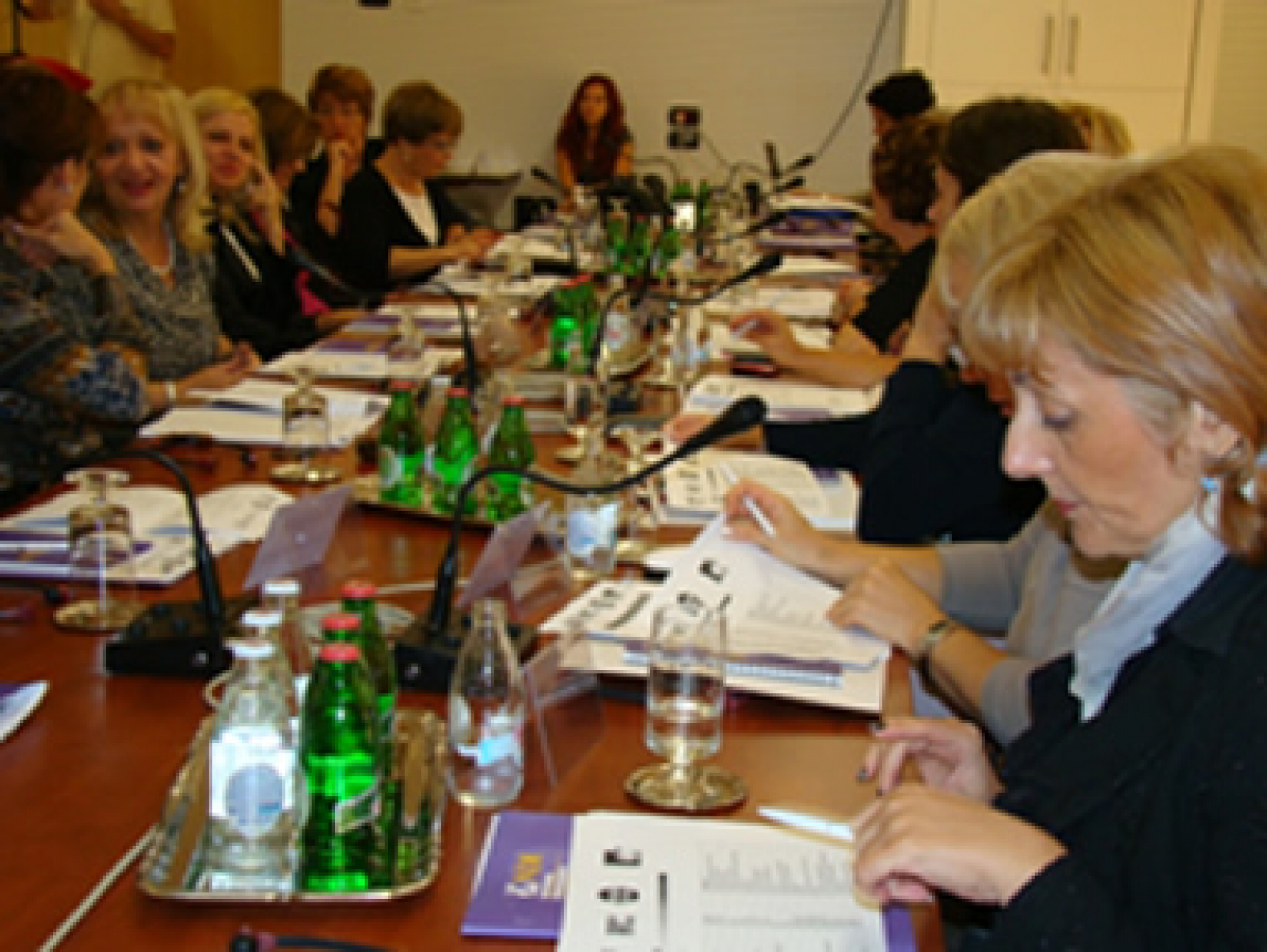
SHARE
As the countries of southeastern Europe struggle to move beyond a legacy of violent conflict and consolidate their democratic institutions, women leaders play an essential role. Frequently, women serve as the vanguard of political change, willing to break with established traditions and accepted wisdom to advocate for reforms. However, women politicians in the region have little place at their parties’ decision-making tables and are frequently absent when policy is developed. To foster cooperation among like-minded women leaders in the region, NDI, from Oct. 9 to 12, convened women from Social Democratic parties for a conference on the role of women's party organizations and Social Democratic approaches to policy topics.
Forty women legislators and leaders of political party women's forums gathered to discuss their common challenges. They stressed the importance of creating a regional network to develop policy solutions, carrying out joint projects and strategies, training women party activists, and moving issues of importance to women to the top of parties’ policy agendas. The event brought together representatives of 14 Social Democratic parties from Albania, Bosnia-Herzegovina, Croatia, Macedonia, Montenegro, Romania, Serbia, and Slovenia, and connected them with western European counterparts, including policy experts from Germany and Sweden.
With funding from the National Endowment for Democracy (NED), the event was co-organized by NDI, the European Forum for Solidarity and Democracy, the German Friedrich Ebert Stiftung, the Olof Palme International Center of the Swedish Social Democratic Party, and Socialist International Women. The Democratic Party hosted the conference in Serbia, following on Social Democratic regional party forums held in Croatia and Serbia in the last year.
Panel sessions focused on the most acute political, economic and social problems facing women from European democracies in transition, including addressing the effects of the current economic crisis, bolstering their position in the labor market, providing labor protections for working women, identifying the role of women's forums in party structures, responding to women's security concerns, and including women's policy platform issues in party agendas.
At the gathering, women legislators and senior party officials strategized on how to increase women's leadership in policy development and legislative advocacy and identify advancement opportunities for the next generation of women political leaders. They agreed to create a coordination body to spearhead establishment of a regional network that would help with these tasks.
"I support the idea to establish a network of women of Social Democratic parties, because we all need to learn from each other's experiences," said Gorica Majovic of the Democratic Party of Serbia. "We all have similar legislative frameworks. Why not use this opportunity to create a sub-network of women parliamentarians from Social Democratic parties?"
After the conference, participants from the Socialist Movement for Integration in Albania and the Democratic Party in Serbia collaborated on several bilateral projects to encourage women entrepreneurship. The Institute also sponsored a consultative visit by Sonja Lokar, a leading Social Democratic voice in Slovenia, to work with the women's wing of the Social Democratic Union of Macedonia (SDSM) on creating a development plan to coincide with the group’s 10th anniversary.
NDI's regional party development program aims to help parties develop policy agendas and connect with like-minded parties in the Balkans and Western Europe. The program has been funded by the NED since 2005. In 2010, NDI will continue to organize similar gatherings of in southeastern Europe to encourage cross-border exchange.
Pictured above: Women leaders from southeastern Europe gathered with peers in Serbia to brainstorm solutions to common challenges.
Published November 24, 2009


